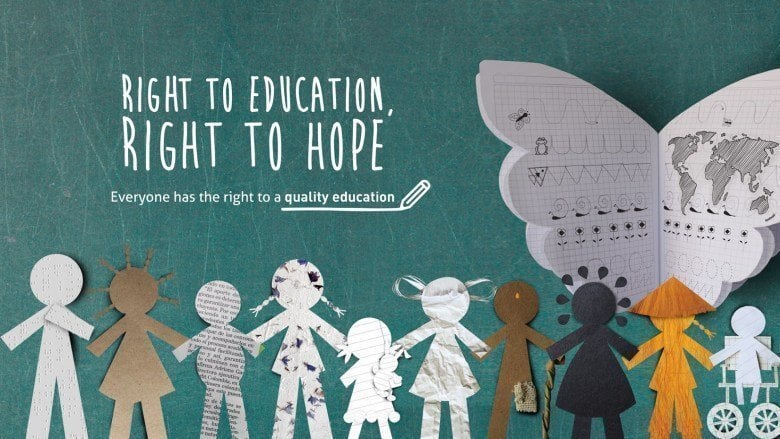Education is not a privilege; it is a **fundamental human right** that is enshrined in international law and essential for the development, dignity, and freedom of individuals. However, this privilege remains unattainable for millions of individuals worldwide, particularly those residing in marginalized and vulnerable communities.
This is where the **Right to Education Project (RTE)** comes into play. The RTE Project is dedicated to the promotion and defense of the right to education for all, with a particular emphasis on those who are excluded or discriminated against. It is supported by organizations such as **Amnesty International**, the **Global Campaign for Education**, and **ActionAid International**.
What is the Right to Education Project?
The **Right to Education Project** is a collaborative human rights initiative that incorporates **research, advocacy, legal analysis, and capacity building** to enhance the global recognition and implementation of the right to education.
The initiative, which was established in 2000, has evolved into a reliable source of knowledge, tools, and support for governments, educators, civil society, and advocates who are dedicated to **transforming legal principles into meaningful access to quality education** for all.
A Human Rights-Based Approach
The RTE Project is fundamentally predicated on a **human rights-based approach to education**. This implies that education should be:
* **Available** – State-funded and free, with adequate infrastructure and qualified instructors.
** **Accessible** – Not subject to discrimination; economically and physically accessible to all.
* **Acceptable** – Relevant to the demands of learners and respectful of cultural identity.
* **Adaptable** – Capable of adapting to the evolving requirements of various learners and societies.
The RTE Project’s efforts to ensure that states fulfill their international obligations are guided by these principles, which were initially established by the United Nations.
Protecting the Rights of the Marginalized
A particular emphasis is placed on groups that are frequently excluded from education systems by the Right to Education Project, such as:
† Women and girls
* Economically disadvantaged populations * Indigenous communities * Refugees and exiled persons * Children with disabilities
The RTE Project contributes to the illumination of **systemic injustices** by documenting violations, providing legal resources, and amplifying grassroots voices. These injustices range from gender bias and school fees to language barriers and assaults on schools in conflict zones.
Impact and Collaboration
The RTE Project’s **partnership model** is its greatest asset. Amnesty International is a critical player in the areas of advocacy and awareness due to its global presence and expertise in human rights law. Through community-based action and education initiatives, ActionAid makes a significant contribution. The RTE Project establishes **synergy between legal advocacy, policy reform, and grassroots mobilization** in collaboration with other global and regional organizations.
Achievements that are noteworthy include:
* Assisting in legal proceedings to defend education rights in national and international courts * Creating user-friendly resources, such as the **Right to Education Handbook** and **indicator frameworks**
• Conducting research on privatization, school fees, and inequality to influence education policy • Empowering local organizations to monitor violations and demand reform
Resources for Change: Knowledge is Power
The RTE Project’s website functions as a comprehensive center for:
* Frameworks and legal instruments
** Advocacy manuals and training materials *** Research reports and thematic briefs ** Country profiles and data dashboards
These resources are available for free, enabling activists, educators, and policymakers to transform global commitments into local realities.
The Reason for Its Significance
Education is not solely concerned with textbooks or classrooms; it is also about the promotion of human dignity, equity, and empowerment. The Right to Education Project serves as a reminder that the guarantee of the ability to learn and flourish for every child, adolescent, and adult is not merely a development objective; it is also a legal and moral obligation.
The urgency of **protecting and promoting the right to education** has never been greater, as the world confronts intersecting challenges such as conflict, displacement, growing inequality, and pandemics.
**Access additional information and resources at:** 🌐 [www.right-to-education.org] (https://www.right-to-education.org)

Leave a Reply